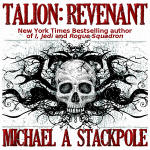Ebook Outsell Hardbacks at Amazon
A number of people pointed me to the New York Times article in which Amazon reports that Kindle sales of titles have outstripped hardcover sales. Many folks have jumped on this report as the canary in the coal mine. It’s the death knell of publishing as we know it. It’s the vindication of a lot of what I’ve been saying—both here in this blog, and in my Digital Career Guide.
Or is it?
If you read the article, there are a couple of things that become very clear. First off, they’re selling 148 ebooks for every 100 hardcovers, and most recently that’s jumped to 180 to 100. That’s almost 2 for 1. And while the Amazon ebook numbers reportedly do not include free ebooks, they most certainly include things selling for anywhere from .99 cents to $9.99 for the most part.
My point being this: would we at all be surprised if there’d been a headline like “Amazon Says Paperback Sales Outstrip Hardbacks?” No. The story does not say, very specifically, that ebook sales are outstripping sales of the same titles in hardback. Had that been happening across the board—and Amazon did report when ebook preorders of Dan Brown’s latest exceeded those of the hardcover orders—the press release certainly would have touted that fact. (That’s a report we’ll get 23 months or less from now.)
So, what’s really being said here is that, given a choice between a cheap ebook and a pricier hardback, readers who already have made the hardware investment in an ebook reader are buying ebooks. This is news?
The buried lede in this story is one that you have to ferret out from between the lines. The fact that the New York Times felt this story was newsworthy means that the “ebook reader” meme has gained a serious foothold. As I’ve mentioned before, when folks talk to me about ebooks, they’re discussing the merits of the readers—not asking what the heck one of the devices is. Half the folks asking me about the iPad want to know how well it serves as a book-reader. The fact that that particular question is on their list shows how much traction the idea of ebooks has gotten in the mind of the public. Ebooks and their utility are accepted in society, and folks are now concerned about how best to make them part of their lives.
Another news and speculation trend I’ve been seeing is authors wondering/lamenting what ebooks and their proliferation will do to the art of writing. I talk a very great deal about that in the Digital Career Guide. In short, the digital marketplace will force writers to get better. We have to please our audiences, not an editor who is going to acquire our books. Writers are suddenly working without a net as we dance on the high-wire. We don’t have an editor insulating us from the public—though that’s an illusion that vanished when the first book commentary blog hit the net. As of yesterday, we’d better be turning out good work that our readers want to read, or we’ll be slinging fries at McDonalds.
 The business changes are also huge. The whole experiment I’m trying with the Talion: Revenant 10,000 ebook challenge will turn the entire system of financing novels on its head. Instead of mortgaging the future for whatever a publisher thinks they’ll be able to sell 2-6 years down the line, I can have readers vote with their dollars for what I should be doing. I can write for my audience, and if a publisher later comes along and wants to turn out a physical copy of the book, that’s great. They’ll be doing it on my terms, however, because they’ll need me more than I’ll need them.
The business changes are also huge. The whole experiment I’m trying with the Talion: Revenant 10,000 ebook challenge will turn the entire system of financing novels on its head. Instead of mortgaging the future for whatever a publisher thinks they’ll be able to sell 2-6 years down the line, I can have readers vote with their dollars for what I should be doing. I can write for my audience, and if a publisher later comes along and wants to turn out a physical copy of the book, that’s great. They’ll be doing it on my terms, however, because they’ll need me more than I’ll need them.
The New York Times article isn’t the canary in the coal mine. It’s the look on the faces of the miners when they realize the canary’s dead. The revolution is already in full swing. It’s racing forward, and this article is just an after-the-action report on a battle that’s long since over. If traditional publishing hopes to make a stand, they’ve got a month, maybe two, to make it. If not, well, I’m sure the Buggy-whip Manufacturers’ Hall of Fame still has some empty space. They’ll fit right in.



 21. Jul, 2010
21. Jul, 2010 








3 Responses to “Ebook Outsell Hardbacks at Amazon”